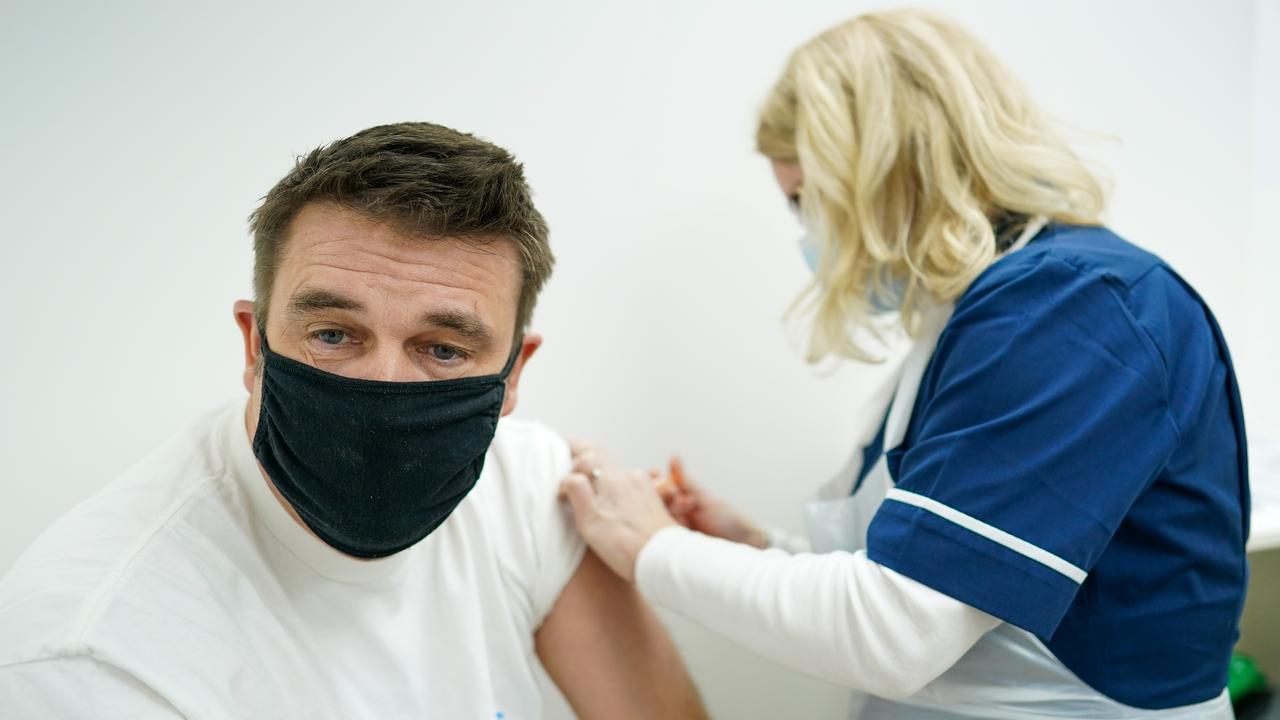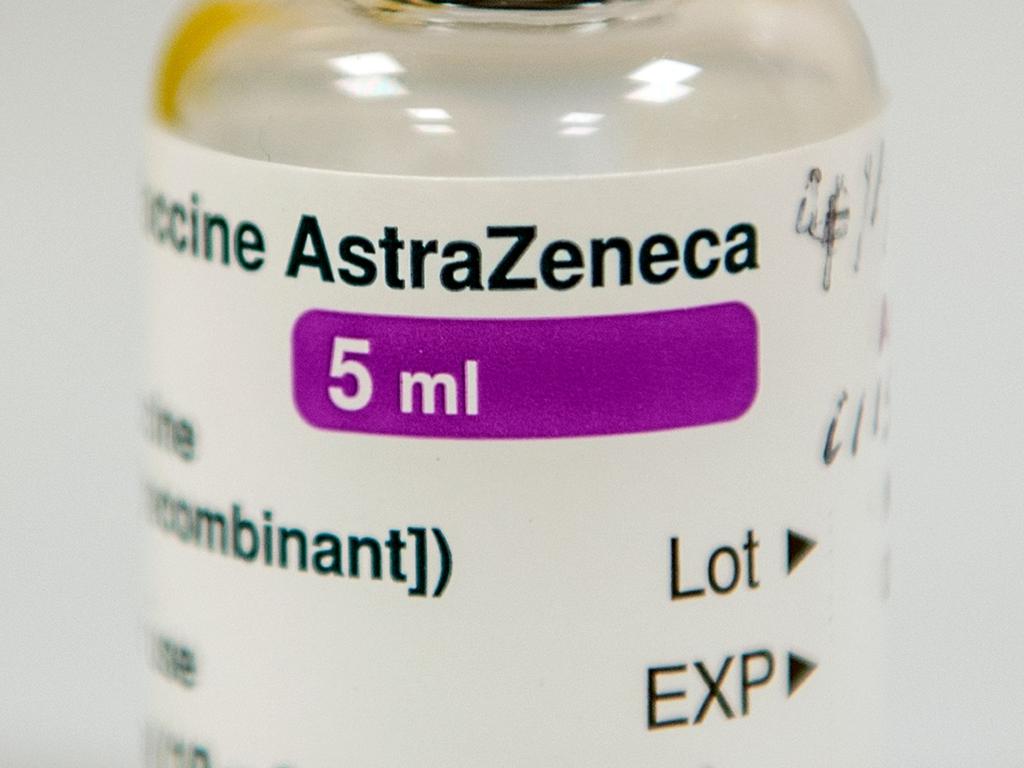When you’re most likely to have side effects from COVID-19 vaccine
There are several potential side effects after having the COVID-19 vaccine. But there is one time you’re more likely to experience them.
Side effects are to be expected when a vaccine is administered to the majority of the population but what’s normal and when should you seek further medical advice?
In most cases, it’s worth remembering that mild side effects are a sign the vaccine is doing its job and triggering the immune response that will protect you against infection.
The first Aussies to receive the COVID-19 jab will be frontline healthcare workers, quarantine and border workers, aged care and disability care staff and aged care and disability care residents.
Vaccinating against COVID-19 is the easiest way for Australians to get their normal lives back, but millions are hesitant to get the jab.
Our Best Shot is news.com.au’s campaign answering your questions about the COVID-19 vaccine roll out.
We’ll debunk myths about vaccines, answer your concerns about the jab and tell you when you can get the COVID-19 vaccine.
The most commonly reported side effects for the Pfizer COVID-19 vaccine are pain at the injection site, tiredness, headache, muscle pain, chills, joint pain, and fever.
One interesting fact to keep in mind is that more people experienced these side effects after the second dose than after the first dose.
RELATED: PM’s message to all Australians
HAVE YOUR SAY: Will you get vaccinated?
RELATED: How the rollout will work
So, it is important to know there may be some side effects after either dose, but Pfizer says it is more likely after the second jab.
In the United States, Frank McGeorge of Local 4 News logged a video diary of his experiences with the second dose and while it’s “better than COVID” he said people should be prepared.
“My experience with the first dose of the Pfizer vaccine was pretty much in line with what I had expected,’’ Dr McGeorge said.
“Mainly just soreness in my arm where I received the injection although it was more severe than I had ever experienced from any other shot.
“My second shot was a different story.
“I want to be clear. I’m talking about this so you have an idea of what could happen after the second shot and are prepared,’’ he said.

“Make sure you have a light day planned. I’ve talked to a lot of my co-workers who also had their second dose and a least a third of them did have significant side effects.”
Millions of people have now received the COVID-19 vaccine in the United Kingdom, where the government hopes to vaccinate 14 million citizens by the middle of February.
They have been using the Pfizer-BioNTech vaccine, the same one that Australia will roll out during the first phase of the program.
It is administered in a 2-dose series, ideally three weeks apart, into the muscle.
For many people it is uneventful. However, for people with a history of allergic reactions to vaccines caution is required.
WHAT TO DO BEFORE YOU GET THE VACCINE
According to Pfizer, you should tell the vaccination provider about all of your medical conditions, including if you:
• Have any allergies
• Have a fever
• Have a bleeding disorder or are on a blood thinner
• Are immunocompromised or are on a medicine that affects your immune system
• Are pregnant or plan to become pregnant
• Are breastfeeding
• Have received another COVID-19 vaccine
In Australia, there are no plans to include pregnant women or children in the vaccine rollout until further tests are conducted.
WHO SHOULD NOT GET THE PFIZER-BIONTECH COVID-19 VACCINE?
You should not get the Pfizer-BioNTech COVID-19 Vaccine if you:
• Had a severe allergic reaction after a previous dose of this vaccine
• Had a severe allergic reaction to any ingredient of this vaccine.
Experts don’t know for sure why there are severe allergic reactions in rare cases but they think the culprit may be polyethylene glycol.
This is a compound found in these vaccines and other medications.
In the US, the Centre for Disease Control says you should not have the vaccine if you’re allergic to polyethylene glycol.

WHAT ABOUT SEVERE ALLERGIC REACTIONS?
Experts say that in rare cases there is a remote chance that the Pfizer-BioNTech COVID-19 Vaccine could cause a severe allergic reaction.
This would usually occur within a few minutes to one hour after getting a dose of the COVID-19 vaccine.
Like many other vaccines, this is one reason why you may be asked to stay for monitoring after you receive the COVID-19 vaccine.
Worldwide, there have been 21 reported cases of anaphylaxis after reported administration of 1,893,360 first doses of Pfizer-BioNTech COVID-19 vaccine. 17 of those people had existing allergies.
According to the Centre for Disease Control and Prevention, most (86 per cent) anaphylaxis cases had symptom onset within 30 minutes of vaccination, and most persons with anaphylaxis (81 per cent) had a history of allergies or allergic reactions.
Interestingly, women are more likely to suffer severe reactions. Most (90 per cent) reported anaphylaxis cases after receipt of Pfizer-BioNTech COVID-19 vaccine occurred in women, although 64 per cent of the vaccine doses administered with sex of recipient recorded were given in women.
“Based on early safety monitoring, anaphylaxis after the Pfizer-BioNTech COVID-19 vaccine appears to be a rare event; however, comparisons of anaphylaxis risk with that associated with non-COVID-19 vaccines are constrained at this time by the limited data available this early in the COVID-19 vaccination program,’’ the CDC said.
Signs of a severe allergic reaction can include:
• Difficulty breathing
• Swelling of your face and throat
• A fast heartbeat
• A bad rash all over your body
• Dizziness and weakness
WHAT SHOULD I DO ABOUT SIDE EFFECTS?
If you experience a severe allergic reaction, call 000, or go to the nearest hospital.




